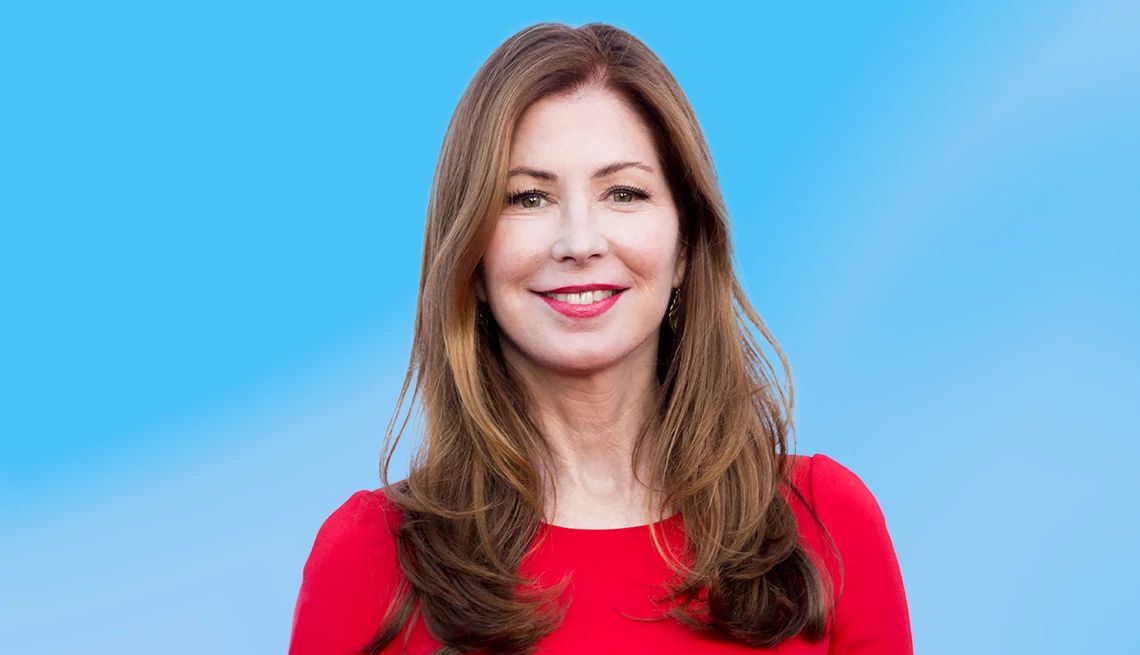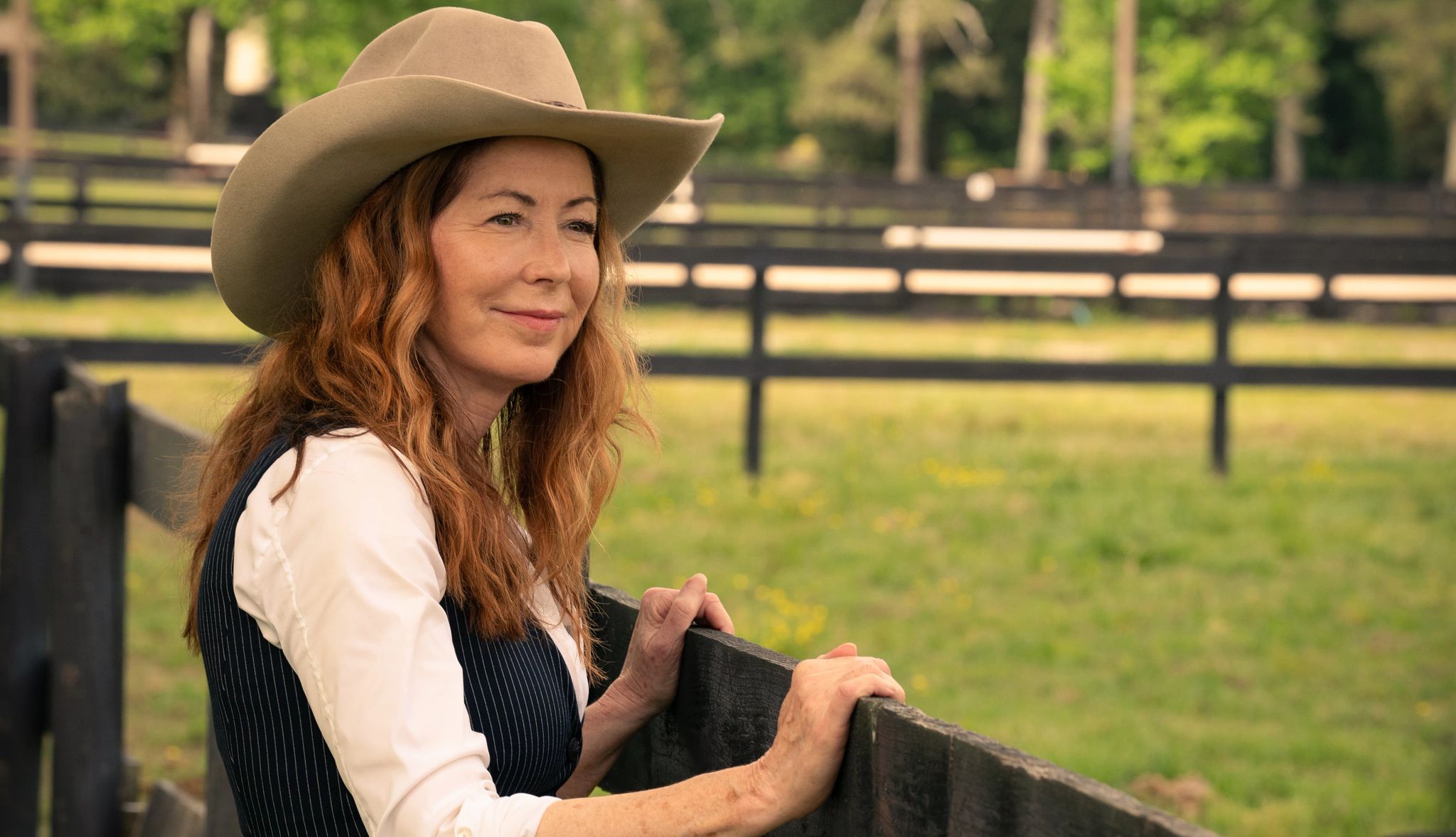AARP Hearing Center


Actor Dana Delany, 68, is laser focused on her work, not her fame. “I’m at the place in my career — or maybe I’ve always been like this, it’s just who I am — I’m not really into publicity. I just love the work, and we live in a culture now where it’s so much about how many followers you have, and that just doesn’t interest me. That’s not why I act.” Her TV work includes roles on the popular shows China Beach and Desperate Housewives, and she stars opposite Sylvester Stallone on Paramount+’s crime drama Tulsa King, which is back for Season 2 on Sept. 15. Delany shares with AARP how a China Beach costar helped her in her current role, what it’s like working with Stallone and why she thinks she’s a little bit psychic.
This interview has been edited for length and clarity.
Your Tulsa King character owns a horse farm and is a skilled equestrian. Did you have experience around horses when you took the role?
I appreciate horses, but I’m not a great rider. The first season, I really wanted to get over that and become comfortable with the horses. So I went and did a little horse therapy with my old friend, Chloe Webb, who was on China Beach with me. She has now become a horse therapist — meaning she uses horses for emotional therapy, with vets with PTSD [post-traumatic stress disorder] or people who have a fear of horses. She’s a great therapist ... and it was kind of mind-blowing what you can fix in one hour. And it was very emotional, and I actually feel very comfortable with horses now. This season, they didn’t have me riding much. My character is more involved with Sly [Stallone].
How is working with Sylvester Stallone?
I have to say, it’s been an unexpected joy working with Sly. He’s quite phenomenal. He works so hard. He’s so prepared. He’s wearing many hats — he’s producing [the show], he does a lot of rewriting, he’s in almost every scene — and he really cares. And he’s editing, and he’s watching the dailies. He’s doing it all. It’s who he is, his nature. On top of all that, he’s incredibly spontaneous. He’s not an autocrat about stuff. That’s how I like to work. Like, yes, we have the scene and we have the writing and it’s great, but can we play with it a little bit? He’s up for playing. And people will see in the stuff that we did this season, we had so much fun. There’s a lot of laughter, and it’s this great game between us to try to keep up with each other. He’s constantly inventing and coming up with something new and throwing it at me, and then I’ll throw it back. It was a lot of fun.


Season 1 of Tulsa King was shot in Oklahoma, and this last season was shot in Atlanta. How did you like shooting outside of the usual L.A. soundstage?
I actually really enjoyed Oklahoma. I’d never been to Oklahoma before, and I found it surprisingly modern and hip and kind of unusual. [Oklahoma City] has great art deco, so I was fascinated by that. And surprisingly, I had never shot in Atlanta before, so that was new for me. It’s really a hard town to figure out because it’s so spread out, kind of like L.A., and you kind of have to figure out what neighborhood you like to be in. I’d say the biggest thing that I loved was the foliage. They have incredible trees there. And they have a great park system, including Piedmont Park. I lived in midtown, and I walked for hours — as much as I could — in the park. It was quite amazing.
Is walking your favorite way of keeping fit?
I love to walk. That kind of took over in the pandemic, and I was lucky to be in Santa Monica [California] so I could walk a lot. Ever since I was a kid, I’ve been a big lone walker. I walk and muse. I don’t listen to anything. I don’t listen to books. I don’t listen to music. I don’t talk on the phone. I like to be present and watch and be with my thoughts.




























































You Might Also Like
Elizabeth Strout Talks Aging and Her Writing Journey
Latest book, ‘Tell Me Everything,’ introduces Olive Kitteridge to Strout’s beloved characters Lucy Barton and Bob Burgess
Eva Longoria’s Bilingual Series Offers a Stunning Escape
Actress shares why filming in Spain is a dream come true and how ‘Desperate Housewives’ helped break down barriers
Blair Underwood Wants to Age Gracefully
Actor talks new show, ‘Three Women,’ and its sexy scenes, how his real love life is going and what scares him
Recommended for You